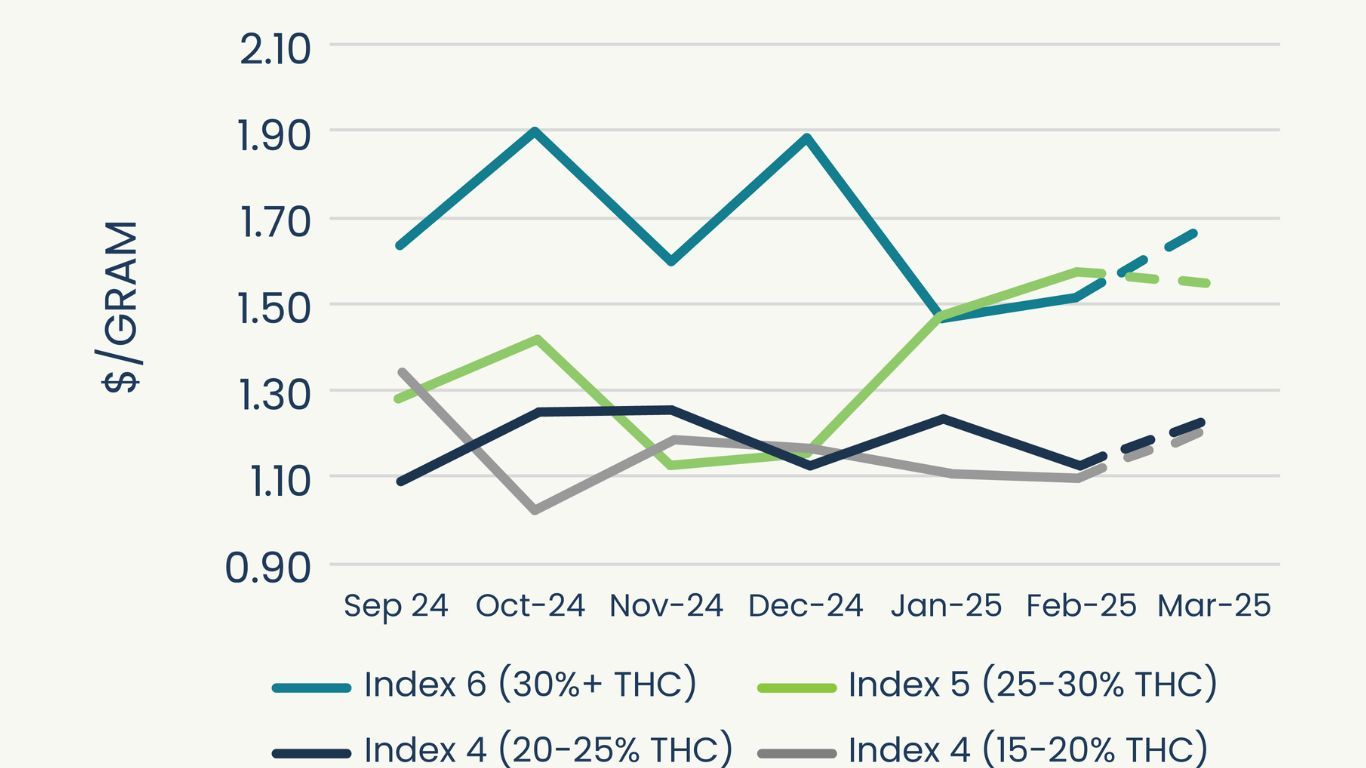
The Société québécoise du cannabis (SQDC) has released its most recent quarterly report for sales between June 19, 2022, and September 10, 2022.
In the most recently-reported fiscal quarter, the SQDC saw $139.1 million in sales, with an overall net income of $22.3 million.
The province also brought in $33.6 million in their share of federal excise taxes ($47.1 million in total).
The sales in the most recent quarter were down slightly ($3.9 million) compared to the same period last year, where the province saw $142 million in sales. The SQDC sold 25,095 kg of cannabis during this most recent quarter.
Despite this drop relative to last year, sales were up slightly compared to the previous quarter. In Q1 2022, sales generated $54 million for the Quebec government, with the crown corporation posting a net income of $20.5 million and another $33.5 million in taxes.
The SQDC blames this “stagnation” of sales on the ongoing strike, which continues in 22 of their 90 branches. Although these branches are still open, they are operating at reduced hours and face picket line pressures.
The provincial organization is still negotiating with the Canadian Union of Public Employees (CUPE), which represents 28 of its 90 branches. Twenty-two of them have been on strike since May 20, and are operated by managers on a reduced schedule. In September, the Superior Court of Quebec issued an injunction to limit union “pressure tactics” against SQDC.
In June, members of a different union, the Confederation of National Trade Unions (CSN), voted to accept an agreement with the SQDC for increased wages, hours, and better working conditions.
Like other provinces, the majority of sales are through brick-and-mortar storefronts. The majority of the 3.2 million transactions through the SQDC (23,864 kg or $132.5 million) were through the now 90 stores operating in the province (as of August 1), while just over 5% of sales were through the SQDC’s online store (1,231 kg) for a total of $6.6 million.
Net operating expenses for the SQDC totalled $21.5M, for a ratio of 15.5% of sales.
The province has also been expanding and changing its approach to cannabis. The SQDC introduced a 90-minute delivery service for the greater Quebec City region and certain localities in Saguenay–Lac-Saint-Jean. Currently in the test phase, the program could be rolled out more widely in the coming months.
The province also introduced several new cannabis edibles that adhere to the province’s strict limits on such products, namely cannabis-infused oven-baked beets, dehydrated cauliflower, and dried figs and “cannabis bites” made of dates, hemp hearts, sunflower seeds, currants, and cinnamon. They are produced by Ontario producer Aphria under their Solei brand.
Earlier this year, the SQDC’s President and CEO Jacques Farcy told StratCann that the province plans to begin shifting from adding new stores to refining consumer experience, including a new “small lot” program to introduce new, unique products into the market.
If the pilot project is successful based on producer and consumer feedback, the SQDC plans on fully implementing the program in April-May 2023.
Quebec reinvests its cannabis revenue in cannabis prevention and research, and to combat any harm related to the use of psychoactive substances.
As of September 10, 2022, the SQDC had 1,036 employees within its network and head office.
Other provinces
In comparison, British Columbia—which has about 5.3 million residents compared to Quebec’s 8.5 million—sold just under $110 million worth of cannabis in Q1, while Ontario’s Q2 results showed $394 million in sales. Ontario’s population is about 15 million.
While Quebec had about 70 stores in their most recent reporting period, BC had around 440. Ontario had about 1,100.











